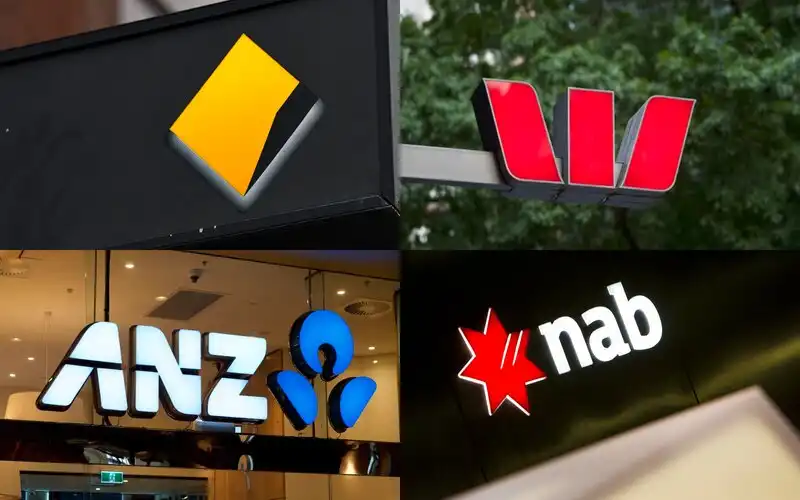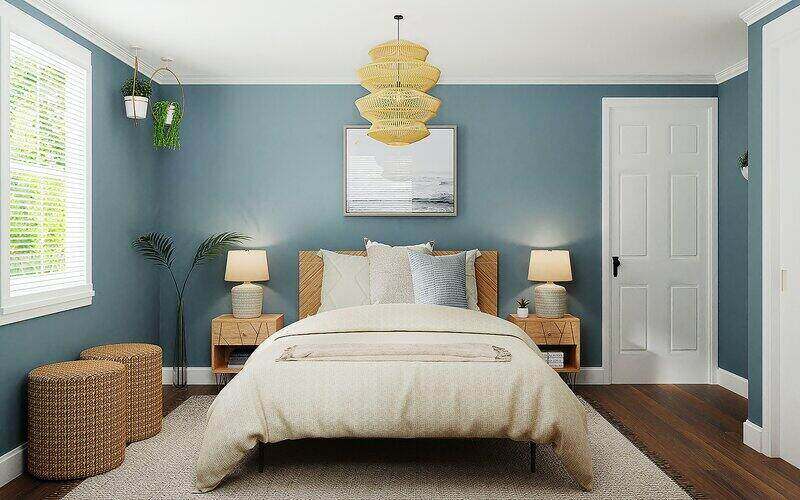There are around 60,000 people currently serving full-time in the Australian military. Some live in barracks, military bases, or, at times, naval vessels but, according to the last census in 2021, about half were in rental properties.
Around half of those were in the private rental market with the rest renting homes provided by the government, mostly through its military housing enterprise Defence Housing Australia (DHA). The self-funded organisation currently manages around 17,000 properties, around 12,000 of those owned by private investors. DHA is regularly seeking to add to its pool of privately owned homes to accommodate military personnel and their families on long-term leases (up to 12 years).
However, there is one major stipulation in leasing a residential property to DHA – it must be within 30 kilometres of a military base. That said, DHA is looking to add properties in every capital city as well as many regional centres. So, if you own a property within 30 kilometres of a military base, or would like to acquire one, it may be worth considering whether DHA suits your long-term investment goals.
What is Defence Housing Australia?
DHA is backed by the federal government but has been self-funded since 1988, currently generating revenue of more than $1 billion a year. In simple terms, DHA operates as a national tenant and service provider for the military but is also a property developer and an active purchaser of homes on the private market. In 2022-23, it added a total of 2,545 properties to its national portfolio with around 90 of those from its own construction programs. It also actively seeks to bring more private rental properties into its housing pool by offering deals not generally available through the private rental market.
What’s different leasing a property to Defence Housing Australia?
Guaranteed* rental income, even when your property is empty
When you lease your investment property to DHA, the organisation itself becomes your tenant. That means you receive rental income even when no one is living in your property. DHA pays rent for the term of your lease as long as your property is habitable. This where the * comes into play. If your property becomes “unusable”, the lease remains in place and DHA negotiates a temporary halt to the rent while you attend to repairing or upgrading the property.
Unlike leasing through a standard property manager, you will also not be charged re-letting or advertising fees when occupancy changes. When the property is vacant, DHA will also continue to maintain lawns and gardens as part of its Property Care Contract (more on the contract later). Rent is accrued daily and paid monthly in advance for the term of the lease.
Long-term leases
DHA allows property owners to choose a long-term lease that best suits their investment plans. Generally, leases are for three, six, nine, or 12 years although there are different extensions and reductions that can be negotiated. It’s worth noting there will be additional terms included in the standard state or territory tenancy agreement. One is that DHA gets to decide whether to extend the term of the lease by 12 months or up to 36 months. It can only do this once. It’s also worth noting DHA does not pay a bond as the tenant and the landlord must take out and maintain the usual insurances to cover the property.
Services package
The lease agreement runs concurrently with a Property Care Contract which provides services for a set fee. The services include most non-structural repairs, rent reviews, and organising inspections and contractors as required. The service fee is a flat 16.5% (including GST) for most free-standing houses and 13% (including GST) where there is a body corporate responsible for most common areas, including external paintwork. These are considerably higher rates than for standard property management fees on the private market which run between 4-10%, depending on the services provided.
DHA acknowledges its fees may seem expensive but says a Property Care Contract covers much more than traditional real estate agent fees. It includes letting expenses, non-structural repairs, grounds maintenance if the property is empty, end of lease repairs and cleaning, and annual rent reviews. DHA points out it may repaint and recarpet the property at its own expense if it determines the property has been subject to unreasonable wear and tear.
In 2022, a BIS Oxford Economics report found the cost of managing and maintaining a comparable detached house investment property was lower overall through DHA than a traditional real estate agent across six rent categories from $400-$850 per week. The data measured the six rental incomes against low, medium, and high-cost property expense scenarios. Of the scenarios, DHA’s management fees came out higher in only the highest rent and lowest cost property expense scenario.
What’s not covered under the DHA Property Care Contract is the usual major items that landlords are expected to provide. These include maintaining essential services such as water, electricity, and gas; repairing damage caused by subsidence, pests, and natural disasters, any repair work that’s under an existing warranty, major landscaping, and other specific exclusions.
Selling with a lease in place
One drawback of leasing an investment property through DHA is that if a landlord wants – or needs – to sell the home during the term of the lease, it must be with the lease agreement and Property Care Contract in place. Of course, that can significantly limit the number of potential buyers.
A DHA spokesman says many prospective investors can be under the misconception they can’t sell their DHA properties if their circumstances change. But property owners can sell at any time in what’s called a ‘mid-lease sale'.
“The property would be sold as an investment property with the lease in place,” a DHA spokesperson told Savings.com.au.
“This allows investors to sell their DHA property to other interested parties looking to buy a DHA investment.”
The organisation says it can “provide information to assist” in such sales. Indeed, in some locations around Australia, DHA may have a list of potential buyers looking to purchase properties already leased to the organisation, but this is not always the case.
Property investment advisors often cite the limited pool of mid-lease buyers as a major downside of investing in DHA housing. National managing director of Metropole Property Strategists Brett Warren (pictured below) says the saleability of a property is a crucial factor in long-term investment.
“DHA properties, bound by lease agreements and specific tenant use (that is, defence personnel), can be less appealing to the broader market,” Mr Warren told Savings.com.au.
“When the time comes to divest, the pool of potential buyers is very limited, leading to longer selling periods and considerably reduced sale prices.”

Regular rental reviews
If landlords choose to lease their properties to DHA, the initial rental valuation will be based on the current market rent of similar properties in the area. If they decide to purchase an investment property that’s already being leased to DHA (via a mid-lease sale), the lease will specify the rent.
DHA says there is often a misconception that DHA rents are below market value, but the organisation points out rents for properties leased to DHA are based on independent valuations. DHA engages independent licensed valuers to conduct regular rent reviews, usually annually. They determine if the rent increases, decreases, or remains the same for the upcoming period specified on the lease. If landlords are unhappy with the reviews, they can appeal the decision by engaging another independent valuer at their own cost.
Does my investment property qualify?
DHA puts out regular appeals to property owners to consider leasing their existing properties to the organisation. First up, the property must be within 30 kilometres of a defence location. DHA regularly releases updated priority location lists, outlining capital city suburbs and regional town locations around Australia. Homes must also meet a list of standards according to the type of property. DHA looks for free-standing dwellings or townhouses, attached townhouses, and apartments. Here is the list of requirements for each:
Free-standing dwellings or townhouses
-
Close proximity to a Defence base (within 30km)
-
Minimum of three bedrooms with built-in wardrobes
-
Lounge
-
Dining
-
Kitchen
-
Laundry
-
Bathroom
-
Separate toilet (location dependent)
-
Ensuite
-
Double or single lock-up garage
-
Fully enclosed rear yard
Additional features that may be required*:
-
Covered outdoor area (15m2 desirable)
-
Security screens
-
Climate control
-
Internal storage: linen, broom and pantry cupboards
-
Low maintenance garden
*These features are desirable and may need to be installed. They will be assessed at the point of application.
Townhouse
-
Close proximity to a Defence base (within 30km)
-
Close proximity to transport links and amenities
-
Minimum of two bedrooms with built-in wardrobes
-
Lounge
-
Dining
-
Kitchen
-
Laundry
-
Bathroom
-
Double or single lock up garage
Additional features that may be required*:
-
Covered outdoor area (10m2 desirable)
-
Security screens
-
Ensuite
-
Climate control
-
Internal storage: linen, broom and pantry cupboards
-
Low-maintenance gardens
*These features are desirable and may need to be installed. They will be assessed at point of application.
Apartment
-
Close proximity to a Defence base (within 30km)
-
Close proximity to transport links and amenities
-
Minimum of two bedrooms with built-in wardrobes
-
Lounge
-
Dining
-
Kitchen
-
Bathroom
-
Secure car accommodation
-
Secure storage room, cage or cupboard
Additional features that may be required*:
-
Security screens
-
Ensuite
-
Climate control
-
Internal storage: linen, broom and pantry cupboards
*These features are desirable and may need to be installed. This will be assessed at the point of application.
DHA invites property owners to submit an application to see if their properties are suitable. It also runs monthly free webinars so property owners and potential property investors can find out more information and have their questions answered live.
Buying or building a property to lease to DHA
For anyone thinking of buying or building an investment home, DHA may commit to leasing it before the purchase is finalised or the building is completed. On some occasions, DHA can advise which builders are currently developing DHA-compliant properties. In these cases, it’s strongly advised property owners seek independent financial advice before committing to ensure the property and the DHA lease deal is in line with any long-term financial goals.
Can you purchase a home in a DHA development project?
DHA is also a developer of residential communities and properties around Australia but has not offered homes for sale to private investors since September 2022. Under its now-paused Property Development Program, investors could purchase DHA-developed homes at market value via a ballot system, mostly for leasing back to the organisation. At times, and in some locations, investors or owner occupiers could also buy private dwellings in DHA developments where between 30-50% of homes would be allocated to defence members and their families.
The DHA website lists some of the organisation's current completed and planned developments with details of progress at each location, as well as any potential investment opportunities. However, the website also notes that some of the developments listed have not been given final approval, may change, or not proceed given the nature of the development and construction process amid the current tight housing market.
Quick pros and cons of investing with Defence Housing Australia
PROS
Guaranteed rent
It’s hard to go past guaranteed rent, even when your home is empty. As well, there are no ‘new letting’ or advertising fees for new tenants.
Set and forget
Buying from or leasing to DHA (or both) can be a good option for those looking for a long-term, low-maintenance approach to property investing. Maintenance and management responsibilities are largely outsourced unless there is a major maintenance issue.
CONS
Geographic limits
DHA is only interested in selling and leasing properties in defined areas. Many of these are in regional areas that may not have the same prospect of capital growth that major cities can offer. If you’re looking to lease an existing property to DHA, there are strict zones that apply.
Extra costs
DHA’s service fees are substantially higher than regular property management fees on the private market, The fees may eat into your profits and need to be carefully weighed up alongside regular landlord expenses such as local government rates, water connection (water usage will generally be reimbursed), strata management fees, land tax, insurance, pest inspections, and major repairs and maintenance.
Selling restrictions
Properties leased to DHA can only be sold with the lease in place. This greatly limits the pool of prospective buyers, ruling out owner-occupiers and other investors who’re looking to put their property on the private rental market. Given that more than 70% of real estate sales are to owner-occupiers, owning a property signed up to DHA automatically rules out a major segment of the buyers' market. This can greatly limit the chances of a quick sale if needed.
As well, DHA-developed properties are always sold at market value for a fixed, non-negotiable price. This means you can’t offer a lower price when purchasing one and may not achieve maximum value when you sell.
A property strategist’s view
Brett Warren of Metropole Property Investment Strategists said in his dealings with investors, DHA properties often come up as an intriguing choice, especially for those drawn to the allure of guaranteed rent. “But for long-term investors seeking sustainable growth and flexibility, DHA properties should be avoided like the plague,” he says.
Mr Warren says historically, DHA properties have shown a tendency for slower capital appreciation than other real estate investments. This is partly because DHA properties are often located in areas with less market demand or in regions heavily dependent on defence employment. “Their value doesn’t escalate at the same pace as properties in high-demand urban or growth areas,” he says.
Another drawback is that DHA properties often involve higher get-in costs due to their required specifications, according to Mr Warren. At the other end of the investment, he says they can also require refurbishment to “civilian standards” before selling on the private market, adding to exit expenses and eating into overall return on investment.
Although some investors are drawn to rental security, he says DHA’s long-term leases can be a double-edged sword. “They can significantly reduce flexibility,” Mr Warren says. “If market conditions change or if personal circumstances require liquidation or repurposing of the asset, the investor is locked into a binding agreement, making it difficult to adapt to new situations,” he says.
That said, the DHA website features a series of video testimonials featuring contented DHA investors, some with multiple properties, who tout the “hands-off”, “hassle-free” nature of property investment with the organisation.
Savings.com.au’s two cents
Leasing a home to DHA may suit some investors seeking a long-term, set and forget approach to property investment where rental income is guaranteed and everyday property maintenance can be comparatively low. For investors seeking shorter-term gains or chasing high capital growth, there are possibly better options on the market. As with all investments, it’s wise to consult a financial or market expert to determine what best suits individual circumstances and personal investment goals.
Image by Bermix Studio on Unsplash
In text image from Metropole

Ready, Set, Buy!
Learn everything you need to know about buying property – from choosing the right property and home loan, to the purchasing process, tips to save money and more!
With bonus Q&A sheet and Crossword!



 Emma Duffy
Emma Duffy
 Harrison Astbury
Harrison Astbury
 Rachel Horan
Rachel Horan